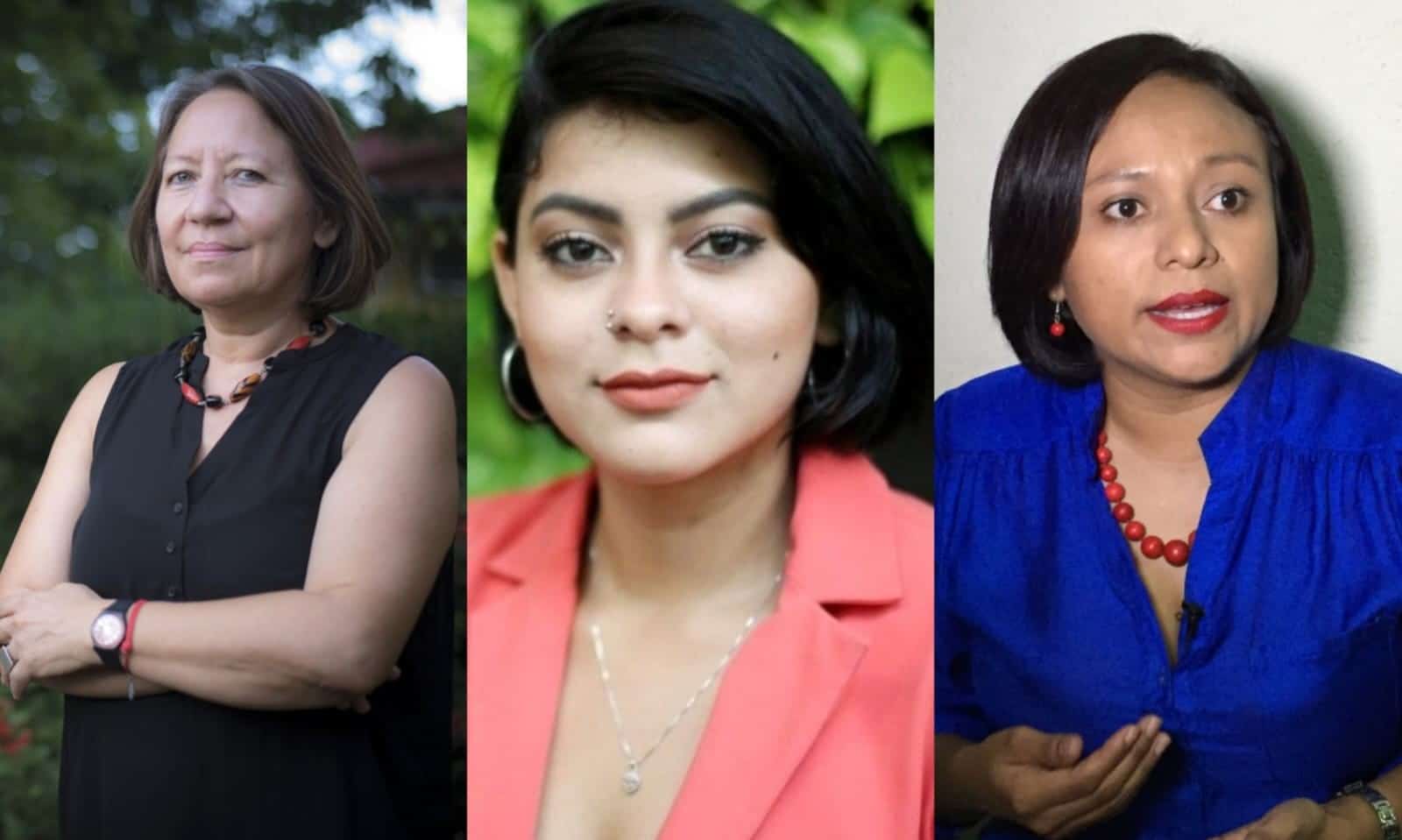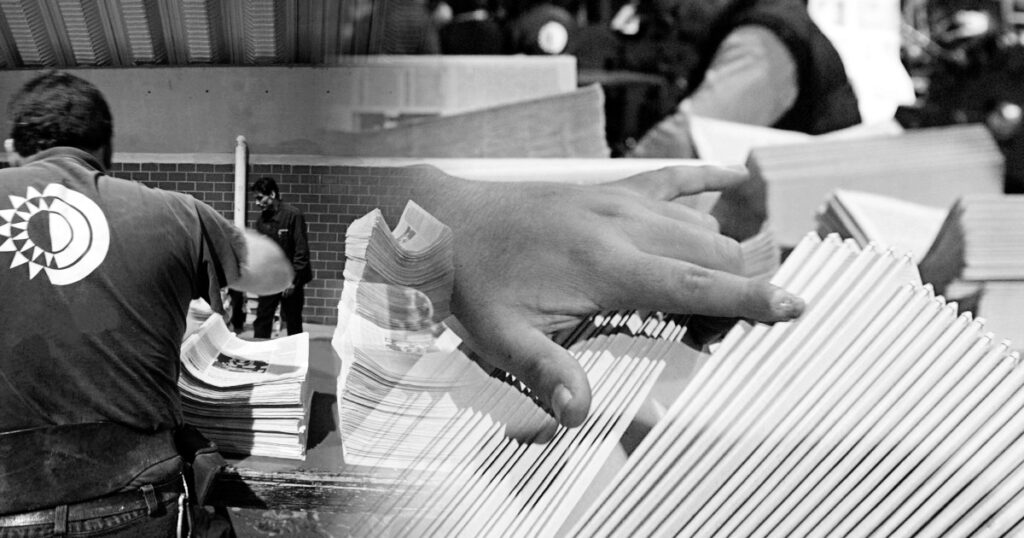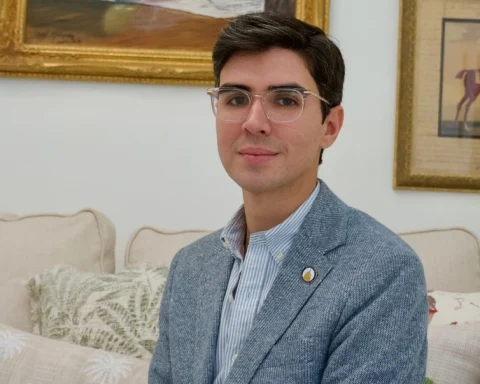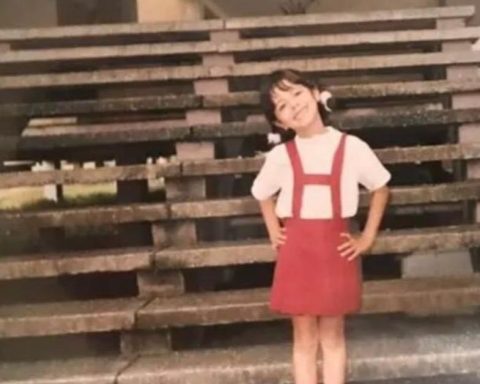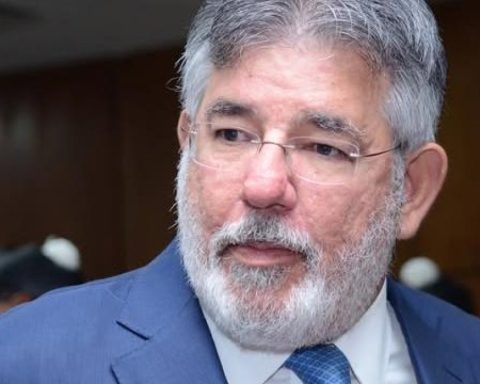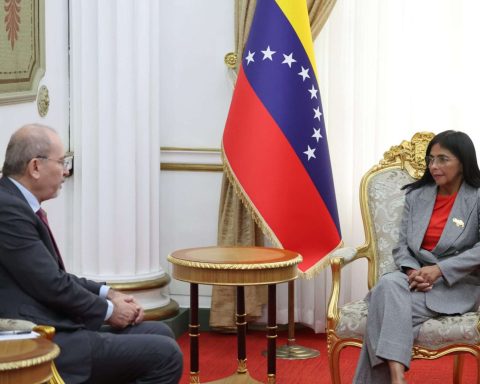Nicaragua commemorates International Women’s Day, this Wednesday, March 8, with historical debts in terms of protection of women’s human, social and economic rights. The Ortega regime has not managed to stop the escalation of sexist violence, which charges around 70 lives each year due to femicides; On the contrary, it dismantled the network of feminist NGOs that harmonized women at risk, brutalized political prisoners and created Women’s Police Stations, without an access route to justice, women’s rights defenders reflected.
The sociologist and feminist Maria Teresa Blandon; the journalist and founder of the medium “the magnifying glass”, Maryórit Guevara; and the express policy Samantha Jironparticipated in a panel on the program Tonight, which will be broadcast in its entirety this Wednesday at 8:00 pm, through the YouTube channel of CONFIDENTIAL.
The women addressed the challenges of the feminist movement in Nicaragua, persecuted by the Ortega regime before the Civic Rebellion; the violations to which migrant women are exposed, and the importance of recognizing women’s rights in the democratization process in Nicaragua.
The three women have been victims of the regime through the repressive state. From exile they claim to continue organizing and denouncing the violations in the country.
What is the main demand of Nicaraguan women and feminist movements inside and outside Nicaragua for this March 8, under a consolidated dictatorship?
Maria Teresa: Actually we would have to say that in Nicaragua there is a historical debt with the rights of women. In all areas of human rights, recognized for the whole of societies, and in particular, for women, we have regressed significantly.
In Nicaragua, the social and economic rights of women have not been able to be sustained, there is a huge increase in poverty and inequality gaps, which particularly affect all women, but obviously those who live in conditions of poverty, which are the majority.
There is also a huge debt in terms of sexual rights and reproductive rights. We can see this in the figures for maternal mortality, in the prevalence of sexually transmitted diseases, in pregnancies among girls and adolescents, which has one of the highest percentages in Latin America.
Of course, also in the field of gender violence or sexist violence, which each year claims around 70 deaths. Unfortunately, this has been a drama that has been increasing and to which we have no response from the Nicaraguan State.
Samantha, as a young feminist woman, a direct victim of the repression of the Ortega-Murillo regime, do you think that this regime acts more viciously against women who have challenged it?
Samantha: Completely. The proof is the many feminist women who experience imprisonment and cruelty while already in the hands of the regime. The regime has persecuted young women activists since the crisis began, even long before, but now it has been seen clearly and directly.
A clear example is how they were merciless with Tamara Davila Because she was a young woman, a feminist, she was one of those who suffered the most in (the Directorate of) Judicial Aid.
It is (worthwhile) taking out the statistics of the more than 20 or 30 women who were imprisoned, how many of us were young and feminists, who are actively fighting for women’s rights.
What is the reality of Nicaraguan migrant women? How is it different from the reality of male migrants? Why do they leave their country and what situations do they face when they arrive at their destinations?
Maryórit: Being a man or a woman when you migrate, and you are a person living in poverty, you will be exposed to different exclusions. However, being a woman, due to roles, gender stereotypes, sexual division, women are going to be exposed to a situation of greater discrimination and violence.
This great migratory wave in Nicaragua has political reasons, but, historically, we know that many women are leaving for economic reasons. Recently there has been a greater increase in departures due to sexist violence.
These women in their trajectory, depending on the routes they take, will be faced with different types of violence: sexual, physical, exploitation, imposed pregnancies, even abortion.
To date, 16 femicides have been reported inside and outside Nicaragua. Last year there were 69 in total. How are the causes of these murders addressed under the current regime? The regime has announced with fanfare the reopening of the Women’s Police Stations, but is that enough?
Maria Teresa: Not only is it not enough, but it is false. The problem is that sexist violence or gender violence, whatever you want to call it, has very old and structural causes (…). That is why feminist organizations have said that it is crucial for the State to develop comprehensive public policies, which are aimed at preventing violence, protecting victims and punishing aggressors in accordance with the laws.
The general directorate of the Women’s Police Station, which was created at the beginning of the 2000s, was crucial because it was the gateway for victims to file complaints and the whole process (investigation) began. This was dismantled, there is no institutional route that ensures timely attention by the National Police so that, from there, the verification, investigation, capture and finally, the trial of the aggressors can take place.
What exists now are offices that are run by police officers, who have no training, who are not even aware of Law 230 (Law of Reforms and Additions to the Penal Code) and which in most cases revictimize the victims.
The feminist NGOs were working in the territories, but they were canceled by the dictatorship. What is happening in the communities right now?
Maria Teresa: The groups and women’s centers had placed sexist violence as a priority, because we know that it is a very serious problem that affects thousands of women and children. The training processes are of enormous importance, but these women’s organizations also had centers, shelters, where women who were in imminent risk of being attacked or murdered were protected, and lastly there was a process of legal and therapeutic accompaniment to the victims of violence. A very complex work system that has always annoyed the Ortega-Murillo regime because, indeed, they did not have a commitment to confront violence against women, in reality, it was never their priority.
They did not silence us despite all the stigmatization campaigns (more than 200 feminist NGOs were shut down). We continue doing this work -the defense of women’s rights- because it is part of our most significant commitment.
Maryórit, you decided to found a movement of migrant women in Extremadura, Spain, what does the movement do, why is it important for Nicaraguan migrants to organize themselves formally?
The idea has always been to agree with the one who has been arriving, to shake hands, because the first years are very difficult, not only due to the lack of documentation, but also the entire migratory mourning. If you come from Nicaragua, you cannot leave the whole political situation aside, unfortunately, you are on two schedules.
We want to bring these women together, not only to support them with their documentation, to process their residence due to social or work ties here, in Spain, but also so that they can establish themselves, learn about the resources that exist, and continue studying.
After the release of more than 200 political prisoners, there has been talk again of the unity of all sectors of society that oppose the dictatorship, but there are those who still stigmatize the feminist movements, why do you think this is the case and what would they say?
Maria Teresa: The fact that some opposition groups reject feminism is, in part, because there is enormous ignorance of the contribution that feminists have given to democracy. If they knew the depth of feminist proposals, they would understand that in order to carry out the transformations that Nicaraguan society requires, it is essential to put gender equality and women’s rights at the center of these debates.
Maryórit: I believe that there can be no real democracy with exclusions. The one who has put their bodies and faces to denounce the atrocities and human rights violations by the dictatorship of Daniel Ortega and Rosario Murillo has been the feminist movement, and they have not done so since 2018, they have been doing it since long before.
Samantha: We all know that the center of this civic and peaceful struggle is democracy, which -implies- respect for rights, including those of women and equality. They must understand that without women it will not be possible to move forward in this democratization process in Nicaragua.
